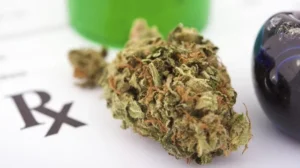Legal medical marijuana sales began in Mississippi less than two months ago, but the state’s legislature has already approved a bill to alter the state’s law.
 The mostly technical piece of legislation, House Bill 1158, has been passed by the House and Senate and has been sent to Governor Tate Reeves for consideration. The measure would limit the information available to the public about businesses’ citation records and attempts to reduce inconsistencies from the agencies that are running the state’s medical marijuana program.
The mostly technical piece of legislation, House Bill 1158, has been passed by the House and Senate and has been sent to Governor Tate Reeves for consideration. The measure would limit the information available to the public about businesses’ citation records and attempts to reduce inconsistencies from the agencies that are running the state’s medical marijuana program.
“Unfortunately the Department of Health in their rules and regs probably accepted some things that were not intentioned (sic) by the bill,” said Senator Kevin Blackwell, one of the bill’s sponsors. “So we are trying to correct those.. and we do so in the bill.”
The law states that “No state agency, political subdivision or board shall implement any rule, regulation, policy, or requirement that is contrary to the provisions of the Mississippi Medical Cannabis Act.”
As noted by Mississippi Today, the bill also turns a mistake by the health department into part of the law. Blackwell told the Senate that the department approved a large operator’s secondary location under one license when it submitted its application. The adjustment allows for the state’s largest cannabis growers to have up to two locations as long as the total canopy size doesn’t exceed 150,000 square feet. That makes the setup of Mockingbird Cannabis, one of the state’s leading cultivators, with a smaller secondary greenhouse-style location 12 miles from their main site acceptable under one license.
The law’s changes make investigation records exempt from the public record law until an investigation has concluded and all appeals have been exhausted. An early draft of the bill called for such records to remain exempt from public record indefinitely, but some senators found the records being exempt from public record for any period unacceptable.
“I think if it was put out in transparency, it would dispel any of the back and forth on social media,” said Senator Angela Burks Hill, one of five senators who voted against approving the changes. “I think hiding that is only going to fuel that speculation.”
The addresses of all cannabis-related businesses, outside of dispensaries, will also be exempt from public record and no longer posted publicly.
The bill includes several other changes that affect patients and businesses, as noted by Mississippi Today, including:
- The Department of Health will now have only 10 days within submission (changed from 30) to approve a patient’s medical cannabis card application. This change comes after MDOH has experienced major backlogs in processing applications.
- Patients can now have a follow up with a different doctor than the one who first approved their medical cannabis card without disrupting their care or access to medical marijuana.
- Doctors and nurses who have approved a patient to receive a medical cannabis card can now help them fill out the online application with the state. Yancey said this was especially to help elderly patients.
- The law now specifies the Mississippi Justice Information Center of the Department of Public Safety and the Federal Bureau of Investigation will handle background checks on workers and caregivers.
- Testing facilities can become licensed transporters or contract with transporters.
- Businesses can display marijuana imagery in company logos and other branding. Dispensaries can also post pictures online to display what they sell.
- Hemp products are not affected by the cannabis act.
- Dispensaries can sell hemp items that are legal under federal law, such as low-THC products known as “CBD.” Dispensaries can also sell topical products that contain marijuana, which cannot be ingested, to patrons over 21 who don’t have a medical cannabis card. These products have to be placed in a separate area than the products for card holders.
- Dispensary licensees now have 18 months instead of 12 to complete construction and still maintain their accreditation.
- The health department can contract with private laboratories for compliance testing, but those labs cannot also perform commercial testing for medical cannabis businesses.







